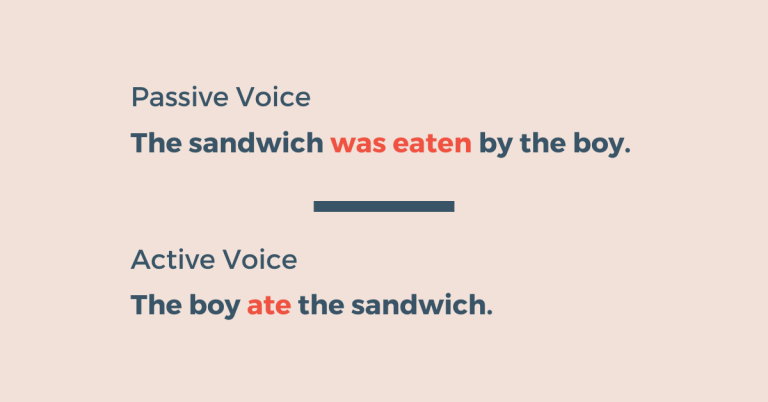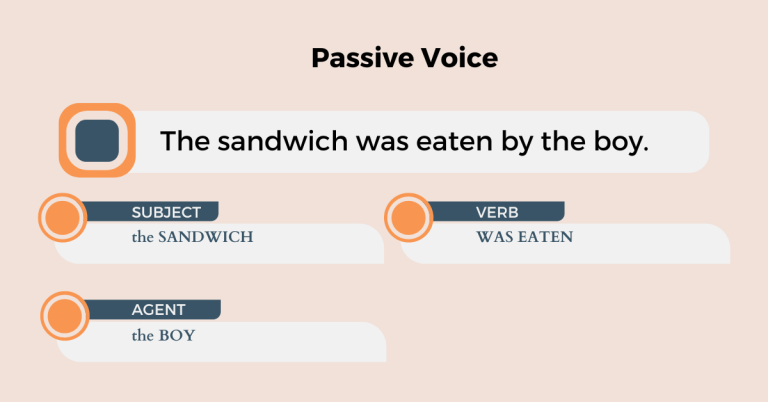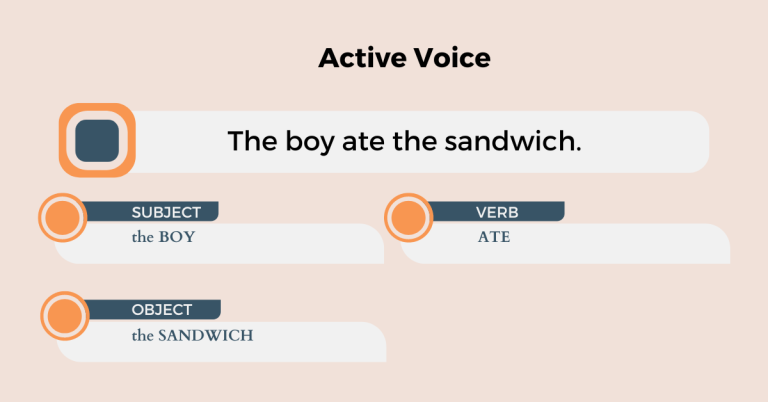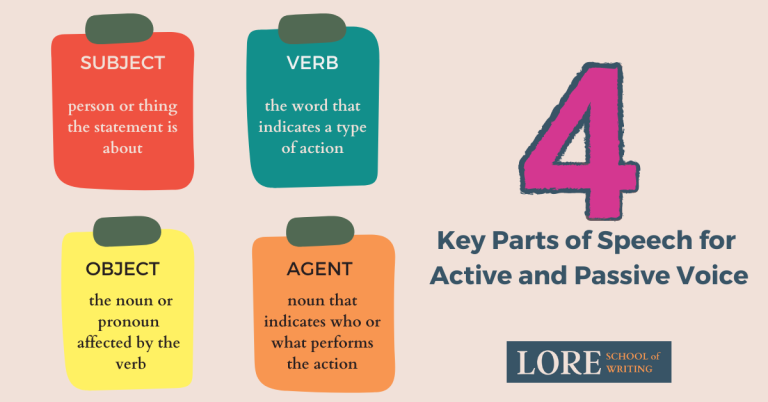 Passive voice can be used by you
Passive voice can be used by you
You don't have to completely eliminate passive voice in your writing. Use passive voice to shift focus to what's most important.
Passive voice and active voice are two different approaches to communication. Neither is inherently bad or good. Both are tools for communication. As a writer your decisions on how you communicate should be intentional.
Voice—active or passive—is one tool you have with which to work.
Choose active or passive voice in line with the goals of your communication. It doesn't matter whether you're a speech writer for the president of the United States or a copywriter for the local HVAC company, voice is a critical tool for writers.

Passive voice and active voice
Passive voice deemphasizes the subject, instead placing the emphasis on the object of the sentence.
Passive voice: The sandwich was eaten by the boy.

- Subject: the sandwich
- Verb: was eaten
- Agent: the boy
You could even remove the agent, "by the boy," and be left with a very ominous statement:
Passive voice: The sandwich was eaten.
This raises so many questions: By whom? When?
And that's exactly where the strength in passive voice lies. It is vague; sometimes, as a writer, you want to be vague.
Active voice, on the other hand, puts the action and the subject at the forefront of the reader's mind.
Active voice: The boy ate the sandwich.

- Subject: the boy
- Verb: ate
- Object: the sandwich
The opposite of passive voice is active voice. Active voice is where the subject of the sentence does the action. There is no agent and ambiguity; it is clear who did what and to whom: The boy ate the sandwich.
Why shouldn't you use passive voice?
One of the first rules you'll learn as a writer is to eradicate passive voice. Why? Passive voice is inherently vague. It separates the action from the subject of the sentence.
In the example of the boy and the sandwich and the eating, you have four parts:
- Subject
- Verb
- Object
- Agent
If you haven't thought about parts of speech in a hot second—and only weirdos like me do this on the regular—here's your cheat sheet:
Subject: The person or thing about whom the statement is made.
Verb: A word that indicates a physical action, mental action, or a state of being.
Object: A noun or pronoun affected by a verb or a preposition.
Agent: Noun phrase or pronoun that identifies the person or thing which performs an action in a sentence.

Once you introduce an agent into your sentence, you're complicating the grammatical structure. It's less clear. It's also usually wordier and longer. And most of the time, that isn't what you want in your writing.
When you use active voice, it's clear who is doing what.
Active or passive voice shifts the focus in your sentence
Active voice: The boy ate the sandwich.
Most of the time, we'd weigh the value of the person far higher than the sandwich. Imagine this scene: a boy enters a café and orders a sandwich between his wandering of some forlorn cityscape. He eats it. We're focused on the boy: what he tastes, how he feels, and what he's thinking.

But when you use passive voice, you take the action off of the true subject and manipulate the sentence, making what is really the object of the sentence—the sandwich—into the subject.
Passive voice: The sandwich was eaten by the boy.
All eyes are on this sandwich in this passive voice construction. Now, we, as readers, are empathizing with the sandwich. The focaccia loaves with mozzarella and provolone, genoa salami and pepperoncini. The way the crust is seasoned with herbs. Who made this sandwich? Why do we care if it is eaten or not? Should someone else have eaten it?

Passive voice has changed the focus of the sentence for the reader. No longer do we care about the eater; we care about what was eaten: the sandwich.
Writers (usually) prefer active voice because it's clearer
Most of the time, as a writer, you want to write with clarity. Here's the value. Here's why you should care. Here's the learning you need to know. Active voice is clearer, less wordy, more descriptive and easy to understand, and more personable than passive voice.
Most of the time, you want to be clear. And that's why most writing advice adheres to the "ban passive voice" approach. If you're placing bets, then banning passive voice would be the smart choice.
Most of the time it's about the boy.
But sometimes you might want to emphasize something else.
When can you use passive voice?
Use passive voice to emphasize different ideas in your writing. Because sometimes you want or need to obscure something.
Maybe there's a fault in a product or service you'd rather not dwell on. Or maybe a geopolitical situation requires some nuance around who's involved and how. Or maybe you'd rather tell a caller what to expect as opposed to lecturing them on what you're going to do.
Whatever the reason, passive voice can be invaluable when you're trying to emphasize different aspects of an idea.
"The passive voice is meant for sentences where you need to emphasize the target of an action or the action itself rather than who or what is performing the action." —Grammarly
When might you want to focus less on who/what performs an action? When the action itself is more important, or when you want ambiguity, or when you want to delay mentioning the agent (perhaps for effect or to create surprise).
Here's an example from Dan Broetzel on Medium where passive voice makes copy better:
Active Voice: Sorry, system upgrade work could mean extended call wait times.
Subject: system upgrade work
Verb: mean
Passive Voice: Sorry, you may have to wait a little longer for us to answer your call at the moment, as we're upgrading our system.
- Subject: you
- Verb: wait
The goal of this communication is to relate how you, our customer, are affected by the subject of our message, the system upgrade. Not that the system upgrade is causing longer waits. You probably don't care why there are longer waits, you just want them to end.
Yes, the second example is longer. It's wordier. It's less clear what's going on behind the scenes at our company, and that's all okay. Because the second example does a better job of empathizing with the actual character (you, the customer).
So, before sending passive voice to its grave, remember you might be relying on it sometime soon to shift perspectives and focus on your copy!
This article is adapted from Is it ever okay to use passive voice. Republished with permission from Siobhan Climer.
